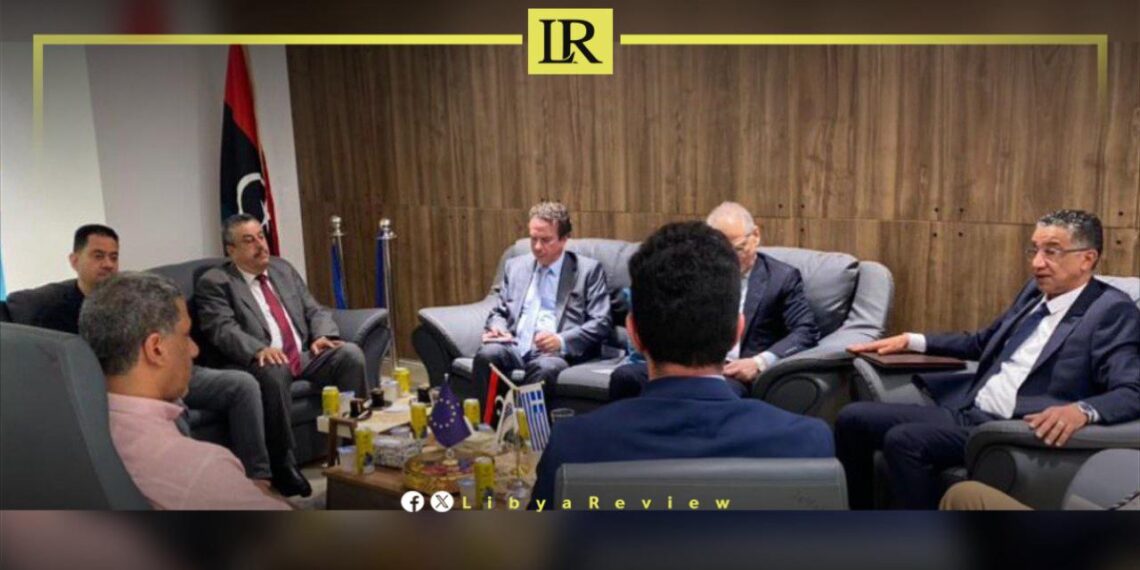On Monday, Dr. Adel Bakar, Director of the European Department at Libya’s Foreign Ministry, held talks with the Greek Ambassador, the President, members of the Chamber of Commerce, Industry, and Agriculture, and the Greek Consul to Libya to discuss the possibility of establishing a maritime route between Benghazi and Athens.
During the meeting, a range of topics of mutual interest in political, economic, and investment fields were discussed. The dialogue emphasized the role of Greek businesses and entrepreneurs in Libya’s reconstruction projects, especially in Benghazi and other regions under the Libyan government’s control, highlighting the potential to leverage Greek expertise in these endeavors.
Key issues addressed included visa facilitation, reopening Libyan airspace to Greek airlines, and establishing a maritime route between Benghazi and Athens. These initiatives aim to enhance cooperation and strengthen the relationship between Libya and Greece, according to a statement from Libya’s Foreign Ministry.
Libya and Greece share a historical connection rooted in the Mediterranean region’s cultural and economic exchanges. In recent years, both nations have sought to revive and deepen their bilateral relations, particularly in the aftermath of Libya’s 2011 revolution which led to significant political and economic upheaval.
Benghazi, Libya’s second-largest city, has been a focal point for reconstruction efforts following years of conflict. The city’s strategic location and port facilities make it a critical hub for commerce and trade. The proposed maritime route between Benghazi and Athens is expected to facilitate the movement of goods, services, and people, fostering economic growth and integration between the two countries.
Greece, with its extensive maritime expertise and robust shipping industry, stands as a valuable partner in Libya’s reconstruction. Greek businesses have expressed keen interest in participating in infrastructure projects, leveraging their experience in construction, energy, and maritime transport.
Libya’s economy, heavily reliant on oil exports, has faced challenges due to internal conflict and instability. Diversifying economic activities and enhancing international trade are crucial for the nation’s recovery. Establishing direct maritime and air links with Greece aligns with Libya’s broader strategy to reintegrate into the global economy and attract foreign investment.


